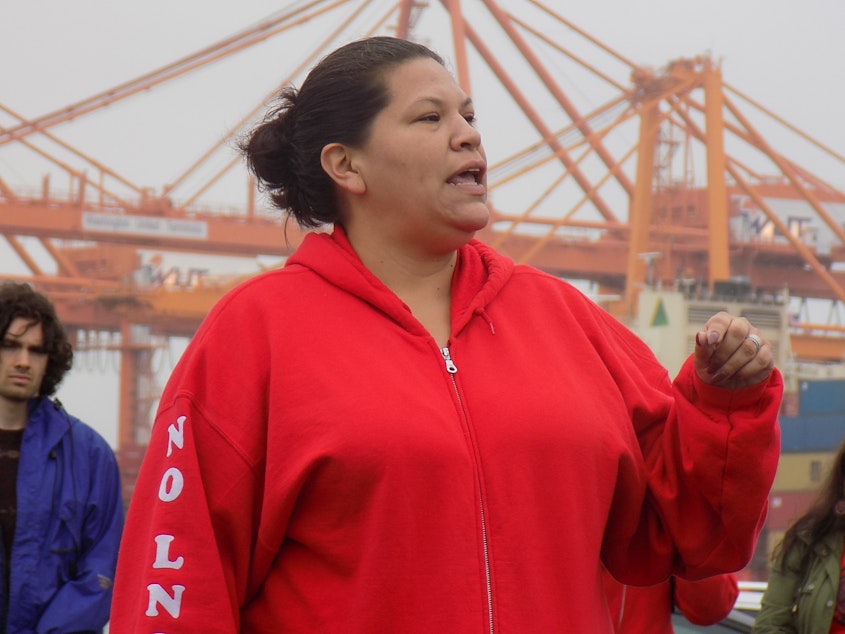Climate advocates go to court to block Tacoma gas plant

Dueling lawyers made their opening arguments Monday in a case that could determine whether a major fossil-fuel plant opens on the Tacoma waterfront.
Opponents are challenging the go-ahead that regulators gave to a Puget Sound Energy plant that would supply liquid natural gas for cargo ships and other users at the Port of Tacoma.
Now nearly complete, the eight million gallon tank is as tall as the Tacoma Dome arena and able to store gas at -260 degrees Fahrenheit.
It has been fought by environmental groups and the Puyallup Tribe for years.
The Puget Sound Clean Air Agency concluded in 2019 that the industrial-scale thermos would not have a significant environmental impact because its gas would be slightly less polluting than the oil those ships burn today.
That claim is at the core of opponents’ arguments for blocking the plant from opening.
Sponsored
“It’s like a pack a day smoker who’ve been told they need to quit cigarettes or die declaring that everything is fine because they’ve cut down from 20 cigarettes a day to 19,” Jan Hasselman, attorney for five environmental organizations, told the Washington Pollution Control Hearings Board virtual hearing. “That is neither an honest nor a useful way to look at the problem.”
If allowed to open, the gas plant is expected to run for 40 years.
Climate researchers say, to avoid climate catastrophe, the world has to quickly stop building new fossil fuel plants and shutter some existing plants before their time.
As a KUOW investigation found in 2019, the clean air agency’s analysis failed to incorporate current science on the impacts of methane, the main component of natural gas, and undercounted the project’s toll on the climate.
"Global warming is an existential crisis for everyone,” attorney Geoff Bridgman said at the hearing. “Our client, the Puyallup Tribe, is particularly concerned about this and sees it as a threat, frankly, to its existence, an existential threat. That’s why we’re here."
Sponsored
Puget Sound Clean Air attorney Jen Dold said the climate-driven sentiment behind her opponents’ arguments was "laudable" but said the arguments were "emotional pleas" and a "very flimsy house of cards."
"Deeply held emotions or requiring the agency to 'do the right thing' according to the appellants are not legal standards," Dold said.
Dold said it doesn’t matter whether the gas plant is a good idea or whether the agency used the best science to assess its impacts. She said the agency followed the law and disclosed the plant’s impacts reasonably well.
"We’ve acted reasonably, with good engineering judgment and consistent with applicable legal requirements,” she said.
The case is expected to last two weeks before the state’s Pollution Control Hearings Board. If the board rules in opponents’ favor, the agency could be forced to redo its environmental impact statement that led to approval of the project.
Sponsored
Washington Attorney General Bob Ferguson filed a “friend of the court” brief in January in support of the opponents. It argued that the air agency used outdated, decade-old science and made multiple errors that undercounted the impacts of heat-trapping methane from the project.
Gov. Jay Inslee announced his climate-driven opposition to the Tacoma gas project in May 2019.
In December 2019, Inslee ordered state agencies to only use the most current science to assess the climate impact of proposed fossil fuel projects, with those rules to take effect in September 2021.
Last week, the Port of Tacoma, along with the ports of Seattle and Vancouver, British Columbia, pledged to eliminate all greenhouse gas emissions from operations on port property by 2050, 10 years sooner than the expected lifetime of the liquid gas plant, which would be located on land that the port leased to Puget Sound Energy.




